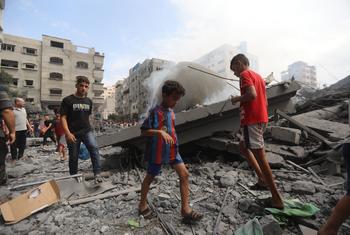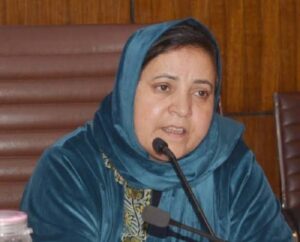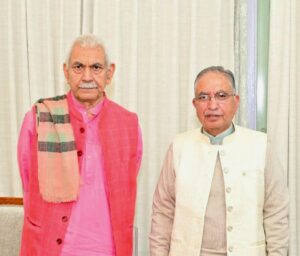The Urgent Humanitarian Crisis in Gaza: A Call to Action for Muslim Nations

The humanitarian crisis in Gaza has reached catastrophic levels following the recent escalation of violence between Israel and Hamas, particularly after the October 7 attacks. With nearly 42,000 Palestinians and over 1,300 Israelis reported dead—predominantly women and children—the situation requires immediate and concerted action. Gaza has transformed into a battleground and an open-air prison, where residents face dire shortages of food, fuel, and medical supplies. Humanitarian organizations have repeatedly warned of an impending disaster, yet the international community’s response has been woefully inadequate. In this context, Muslim nations must take a leading role in addressing the suffering in Gaza. Unlike the substantial support that Western nations have extended to Ukraine, the Muslim world has largely limited itself to verbal condemnations of Israeli actions, without implementing effective measures to counteract these aggressions. It is imperative that Muslim countries unite for a cohesive and decisive approach to alleviate the crisis and advocate for Palestinian rights.
The current geopolitical landscape starkly reveals the disparity in the commitment shown by Western nations toward Ukraine compared to their actions regarding Palestine. While the West has mobilized significant military and economic resources to support Ukraine, similar backing for the Palestinian cause remains glaringly absent. Muslim countries need to apply diplomatic pressure on Western nations to halt military aid to Israel. Measures such as expelling ambassadors from countries that support Israel, like the United States and the United Kingdom, would send a powerful message. Furthermore, recalling their own ambassadors from those nations could signify serious discontent and a collective resolve to address the crisis. Influential nations within the Muslim world, such as Turkey, Saudi Arabia, Egypt, and Qatar, should take the lead in these initiatives. They can leverage platforms like the United Nations General Assembly and the International Court of Justice to amplify their voices and advocate for resolutions condemning Israeli actions while demanding accountability for violations of international law. Such diplomatic pressure can help create a more robust response to the crisis. In addition to diplomatic strategies, economic measures can serve as powerful tools in influencing Israeli policies. A coordinated boycott of trade with Western nations that support Israel could demonstrate a serious commitment to the Palestinian cause. Supporting the Boycott, Divestment, and Sanctions (BDS) movement is crucial, as it represents grassroots efforts aimed at applying economic pressure on Israel. One particularly impactful action would be disrupting oil supplies to Israel. Countries like Turkey and Azerbaijan, integral to the Baku-Tbilisi-Ceyhan (BTC) pipeline, could consider halting oil exports to Israel. This action would threaten Israel’s energy security while demonstrating solidarity with the Palestinian people, potentially altering the dynamics of the conflict. The humanitarian crisis in Gaza necessitates urgent and coordinated aid efforts. Muslim nations must collaborate to establish robust humanitarian missions aimed at delivering essential supplies to those affected. Setting up logistics networks to facilitate the safe passage of food, medicine, and other critical resources into Gaza is essential. The Organization of Islamic Cooperation (OIC) can play a pivotal role in organizing these efforts.
By establishing peacekeeping missions and humanitarian aid channels, the OIC can ensure that assistance reaches those in dire need. Engaging with international NGOs and aid organizations will also be vital to guarantee effective delivery of aid. Creating safe corridors for aid delivery, protected from violence, will significantly alleviate the humanitarian toll on Gazans. Such initiatives not only provide immediate relief but also lay the groundwork for future reconstruction efforts. Muslim leaders should actively seek to mobilize global support for the Palestinian cause by engaging with other nations. Building relationships with countries sympathetic to the plight of Palestinians can create a broader coalition advocating for peace and humanitarian assistance. High-profile meetings and conferences highlighting the humanitarian crisis can help raise awareness and generate international pressure on Israel. Inviting leaders from various countries to visit Gaza and witness the situation firsthand can foster greater understanding and support for the Palestinian cause. Despite the historical struggles faced by international organizations in addressing the Palestinian issue, their involvement remains crucial. Geopolitical complexities often impede decisive action, but a united response from the Muslim world can create new dynamics that encourage these organizations to take a more active role. Utilizing platforms like the UN can help bring renewed focus to the crisis. Regular discussions and resolutions concerning the humanitarian situation in Gaza can keep the issue in the international spotlight. Additionally, pursuing legal avenues through the International Criminal Court (ICC) could hold accountable those responsible for alleged war crimes in the region. While the measures proposed are vital, it is essential to approach this situation with a realistic perspective. The historical inaction of international organizations regarding the Palestinian issue stems from geopolitical interests and alliances. Nevertheless, the collective efforts of Muslim nations can challenge these dynamics and prompt a reevaluation of existing policies.
Realism also involves recognizing the complexities on the ground in Gaza, where Israel maintains control over borders and airspace. The term “genocide” captures the severe impact of violence on the Palestinian population, yet the muted response from international organizations exacerbates the crisis. Their silence and inaction not only fail to address humanitarian needs but also diminish the prospects for meaningful negotiation. When these organizations sidestep urgent issues, it creates a perception of indifference, allowing aggressive actions to continue unchecked and undermining the urgency for dialogue. The lack of robust intervention and advocacy weakens the accountability of governing bodies and emboldens factions that perpetuate violence. This inaction ultimately leads to increased suffering and further entrenchment of divisions, making peace seem increasingly unattainable. For an effective resolution, international organizations must prioritize active engagement and advocacy, addressing both humanitarian concerns and the broader implications of the conflict to foster an environment conducive to negotiations. Any strategies must be crafted to navigate these realities effectively. A concerted effort from the Muslim world can still lead to meaningful change and help mitigate the ongoing humanitarian crisis. The crisis in Gaza represents a profound humanitarian emergency that requires immediate and decisive action from the international community, particularly from Muslim nations.
Through diplomatic mobilization, economic strategies, humanitarian initiatives, and strategic international relationships, the Muslim world can take significant steps toward alleviating the suffering of Palestinians. While challenges remain, a united response rooted in solidarity and commitment to justice offers a pathway toward hope for the people of Gaza. The time for action is now; with thoughtful and honest engagement, a brighter future for Gazans can be achieved. In this moment of crisis, the Muslim world has an opportunity to demonstrate its commitment to human rights and dignity, championing the cause of those who have suffered for too long.
Author: Farooq Ahmad Lone with Hilal Zargar.





